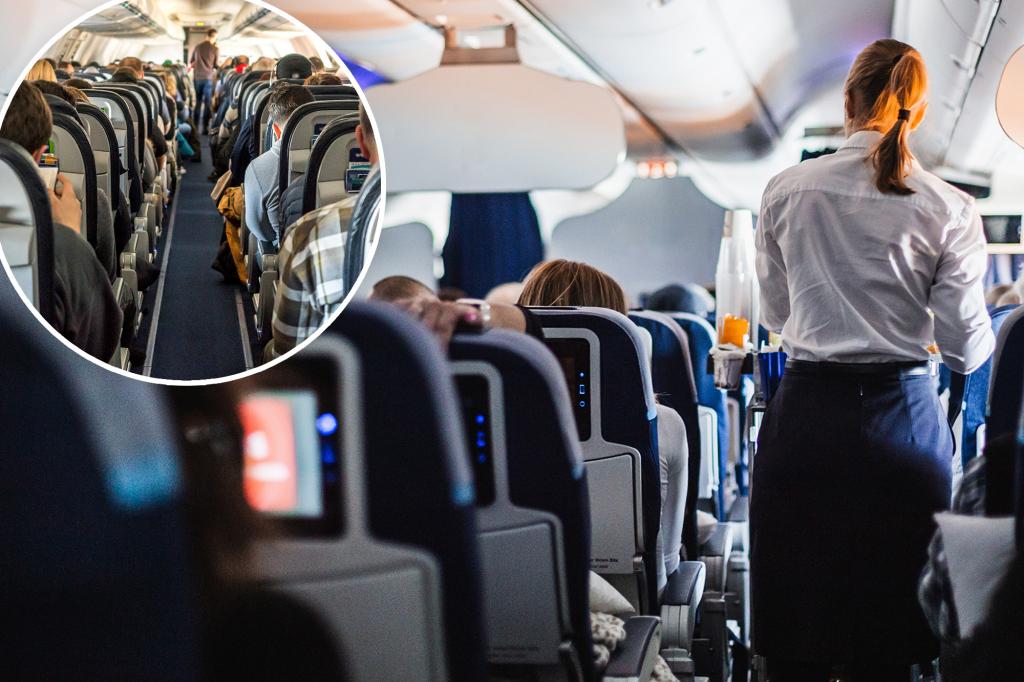Airplane Bathroom Etiquette: The Small Things That Make a Big Difference
In the confined space of an aircraft, small courtesies can make all the difference between a pleasant journey and a frustrating one. Among the various unspoken rules of air travel, bathroom etiquette stands out as particularly important. Flight attendants, the unsung heroes of our sky journeys, have a specific pet peeve that consistently disrupts the delicate ecosystem of airplane operations: passengers who fail to properly lock bathroom doors when using them or leave them partially open after finishing. This seemingly minor oversight creates a cascade of confusion and inconvenience for both crew members and fellow travelers. When a bathroom door isn’t properly secured, the “occupied” indicator doesn’t light up, leading other passengers to believe it’s available. This results in unnecessary queues that obstruct the flight attendants’ workspace, preventing them from efficiently moving through their designated areas. As one senior cabin crew member explained, “When the door lock isn’t engaged properly, people can walk in on someone by accident. It’s embarrassing for everyone involved and wastes valuable time, especially when there’s a queue during busy periods.”
The importance of bathroom etiquette reflects a broader conversation about considerate behavior in the increasingly cramped confines of commercial air travel. With flights often operating at full capacity, the actions of each passenger ripple through the cabin, affecting everyone’s experience. Taking the extra second to ensure the bathroom door is properly locked when entering and fully closed when leaving represents a small effort that yields significant benefits for the collective travel experience. These minor courtesies maintain privacy, prevent embarrassing encounters, and help flight attendants perform their duties more effectively. In a space where personal boundaries are already compressed, respecting these simple procedures becomes even more essential for preserving dignity and comfort during what can already be a stressful experience for many travelers.
The discourse around airplane etiquette extends far beyond bathroom behavior, encompassing various aspects of passenger conduct that can either enhance or detract from the communal flying experience. Recently, a passenger took to Reddit to express frustration about another traveler who had concealed their carry-on luggage behind the curtain separating premium economy from first class. This strategic placement allowed the passenger to circumvent baggage storage rules, essentially gaming the system while flight attendants apparently failed to notice or address the violation. The original poster’s complaint sparked a flurry of responses, with many commenters expressing disdain for such behavior. “The carry-on abuser has outed themselves here. We all despise you,” remarked one particularly blunt respondent, highlighting the community’s collective disapproval of those who disregard shared rules for personal convenience.
This incident points to a broader pattern of declining adherence to traditional flight protocols, with some passengers noticing a general relaxation in enforcement. Another commenter observed that flight attendants sometimes seem to overlook violations during their cabin checks, noting: “Frankly, I’ve seen stuff like this lately and I guess now it’s OK for people not to bring their seats back to the original position in prep for landing. The flight attendants do their ‘walk’ and I’m convinced they see it but they walk right by.” This perception raises questions about whether airline staff are becoming more lenient, whether they’re simply overwhelmed with other responsibilities, or whether passenger behavior is gradually reshaping the norms of air travel. Regardless of the cause, these observations suggest a shifting landscape of in-flight expectations and enforcement.
The conversations around airplane etiquette reflect our collective negotiation of shared spaces in an era when air travel has become increasingly accessible yet simultaneously more crowded and restrictive. Each passenger brings their own expectations, habits, and understanding of social norms to this temporary community, creating a complex social environment that must function smoothly despite its inherent tensions. When someone circumvents the rules—whether by improperly using the bathroom door or hiding luggage where it doesn’t belong—they’re essentially prioritizing their convenience over the collective good. These small acts of self-interest accumulate, potentially degrading the quality of experience for everyone. The passionate responses these behaviors evoke online demonstrate how deeply people care about maintaining certain standards of conduct, even (or perhaps especially) in transient spaces like airplanes.
As air travel continues to evolve, with airlines squeezing more seats into cabins and charging for services that were once complimentary, the importance of passenger etiquette only grows. The bathroom door that isn’t properly locked and the suitcase hidden where it shouldn’t be are symbols of a larger challenge: how do we maintain civility and consideration in increasingly constrained circumstances? Flight attendants, positioned at the frontlines of this ongoing negotiation, bear witness to the full spectrum of human behavior, from extraordinary kindness to perplexing selfishness. Their frustrations with certain passenger behaviors remind us that while we may be temporary occupants of these flying metal tubes, our actions have real impacts on the comfort, efficiency, and dignity of everyone’s journey. Perhaps the next time we fly, we might all take a moment to ensure that bathroom door is properly secured—a small gesture that speaks volumes about our willingness to be thoughtful travelers in our shared sky.


